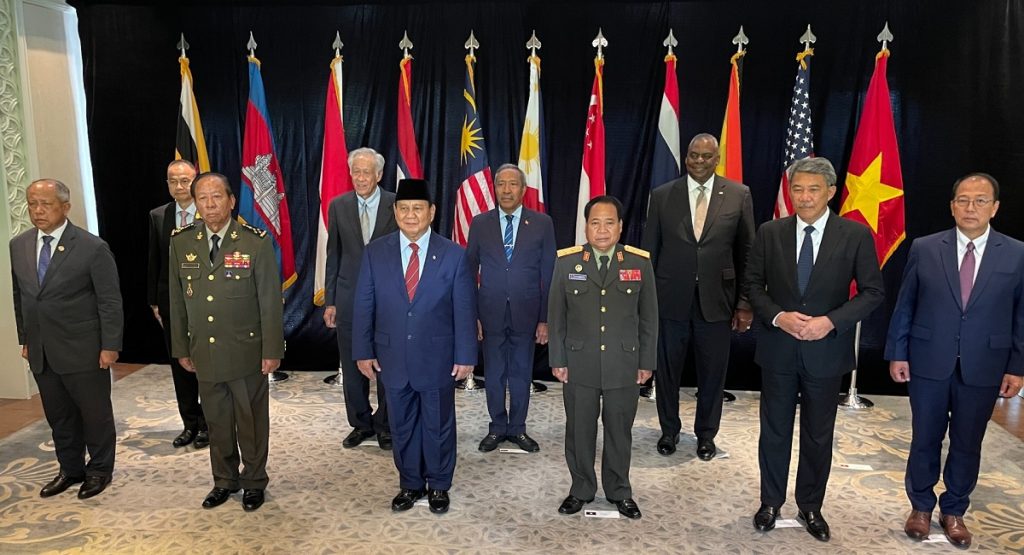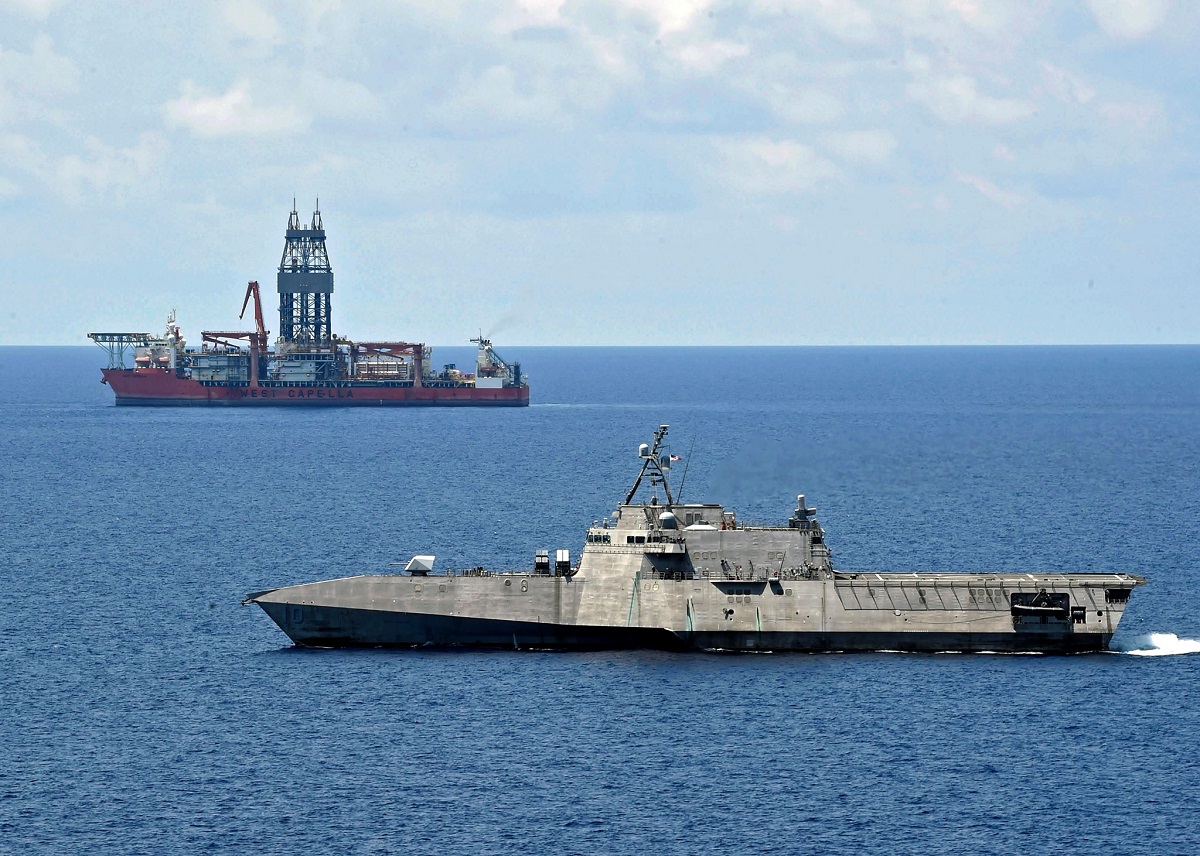ASEAN Wants to See US-China Communication Lines to Remain Good
SINGAPORE: Singapore and other Association of Southeast Asian Nations (ASEAN) states are not “disinterested bystanders” in ongoing tensions between the United States and China, said Singapore’s Minister for Defence Dr Ng Eng Hen.
Speaking to reporters on the third and final day of the Shangri-La Dialogue at the Shangri-La hotel here, Ng said that Singapore and ASEAN have “a vested interest” in making sure that communication lines between the two superpowers are good.
He said the US and China do not want physical conflict but added that both recognise that they are a long way from an acceptable state of affairs.
During the dialogue proceedings, he said unplanned incidents can occur and channels of communications must exist so that conflicts can be de-escalated. Ng stressed it was vital to maintain lines of communications between friends, “and more so, potential adversaries.”
Importance of Channels of Communications for Dialogue
During the seventh plenary of the meet, Minister Ng stressed that countries must strive to maintain peace and avoid a physical conflict in this region. He was speaking on the topic “Developing Models for Cooperative Security“, alongside Australia Deputy Prime Minister and Minister for Defence Richard Marles, and Cambodia Deputy Prime Minister and Minister of National Defence Gen Tea Banh.
He highlighted that an adequate defence budget is core to defence deterrence and while the increase in global military spending is not necessarily a source of instability, it is in “the absence of a strategic framework of engagement and mutual restraint, cooperation despite competition, that balance tilts away from deterrence and the risk of conflict increases”.
In the economic domain, shifting trade alliances and the growing salience of nativist economic policies were also strong winds of change that could have an impact on regional stability.
The Singapore Minister underscored the importance of countries building and maintaining channels of communication for dialogue. He said that “such channels of communications must be built over time” and that when “unplanned incidents occur, that line of communication could make a crucial difference in the de-escalation of hostilities”.
Within the region, ASEAN member states had sought to pursue military cooperation in an open and inclusive manner to prevent miscalculation and build confidence amongst regional militaries. This included involving the US, China and other ASEAN Defence Ministers’ Meeting-Plus dialogue partners in multilateral exercises.
On the price of conflict and war, Ng told reporters at a doorstop interview earlier that “there was a real sincerity and urgency that what happened in Ukraine must not happen in Asia because as many ministers have said, if you have simultaneous war in Europe and Asia, it’s catastrophic.”
South China Sea Issue Concern
Malaysia Defence Minister Mohamad Hasan said that his country will continue to work with ASEAN member states to intensify the negotiation with China on the realisation of the Code of Conduct for the South China Sea.
Mohamad said this at a press conference held after “Breakfast Talk: Five Power Defence Arrangements (FPDA)” hosted by his Singaporean counterpart. Also present at the press conference were Australia Deputy Prime Minister and Defence Minister Richard Marles, New Zealand Defence Minister Andrew Little, and the United Kingdom Secretary of State for Defence Ben Wallace.
He noted that although FPDA and its members enjoy close relationship with each other, “Malaysia will not be taking sides and insists on the position of a non-aligned state.”
Separately, Singapore Defence Ministry said, the Ministers reaffirmed their nations’ commitment to the FPDA and acknowledged the significant progress that the FPDA has made since its inception.
The FPDA is a series of bilateral defence arrangements between Australia, Malaysia, New Zealand, Singapore, and the United Kingdom. Formed in 1971, the FPDA continues to play a key role in promoting regional cooperation and contributes constructively to the regional security architecture through the conduct of regular exercises, dialogues, and platforms for professional interactions, it added.
The ministers also agreed that the FPDA provided a valuable platform for member nations’ militaries to strengthen interoperability and enhance cooperation through regular exercises such as Exercise Bersama Shield and Exercise Bersama Lima.
They further exchanged views on ways to enhance the FPDA’s relevance by strengthening the operational value of the exercises in conventional areas, and growing collaboration in non-conventional domains in the face of contemporary security challenges, it said.
Elephant in the Room
Wrapping up the event, the Minister Ng acknowledged the US-China relationship as the obvious elephant in the room, given how it had deteriorated since last year but that said that the Shangri-La Dialogue “plays a role and that it fills in the gaps.”
The two superpowers had a closed-door meeting lasting about an hour during last year’s Shangri-La Dialogue. This year however it was reported that US defence secretary Lloyd Austin and China’s defence minister Li Shangfu merely greeted each other. –agencies/adj/mgm (Pix: MINDEF/US Navy/Others)

Main pix: The US Navy Maintains Persistent Presence Near West Capella as it will fly, sail and operate in the South China Sea wherever international law permits at any time.


